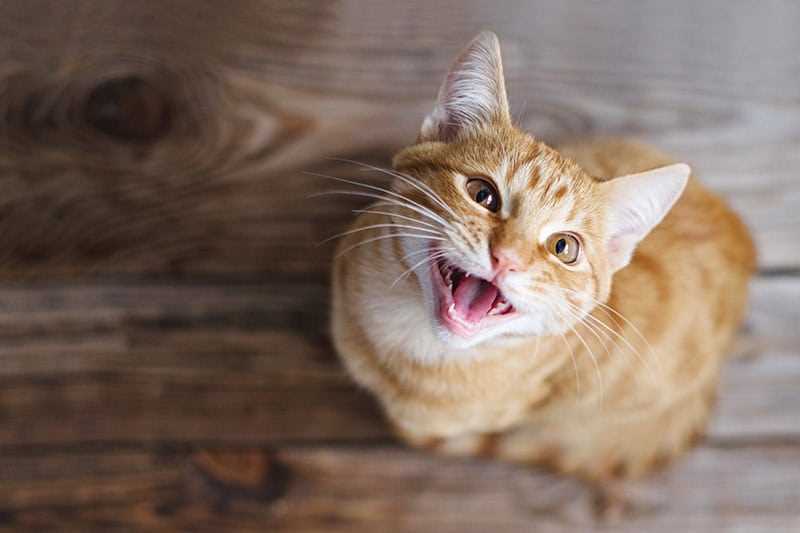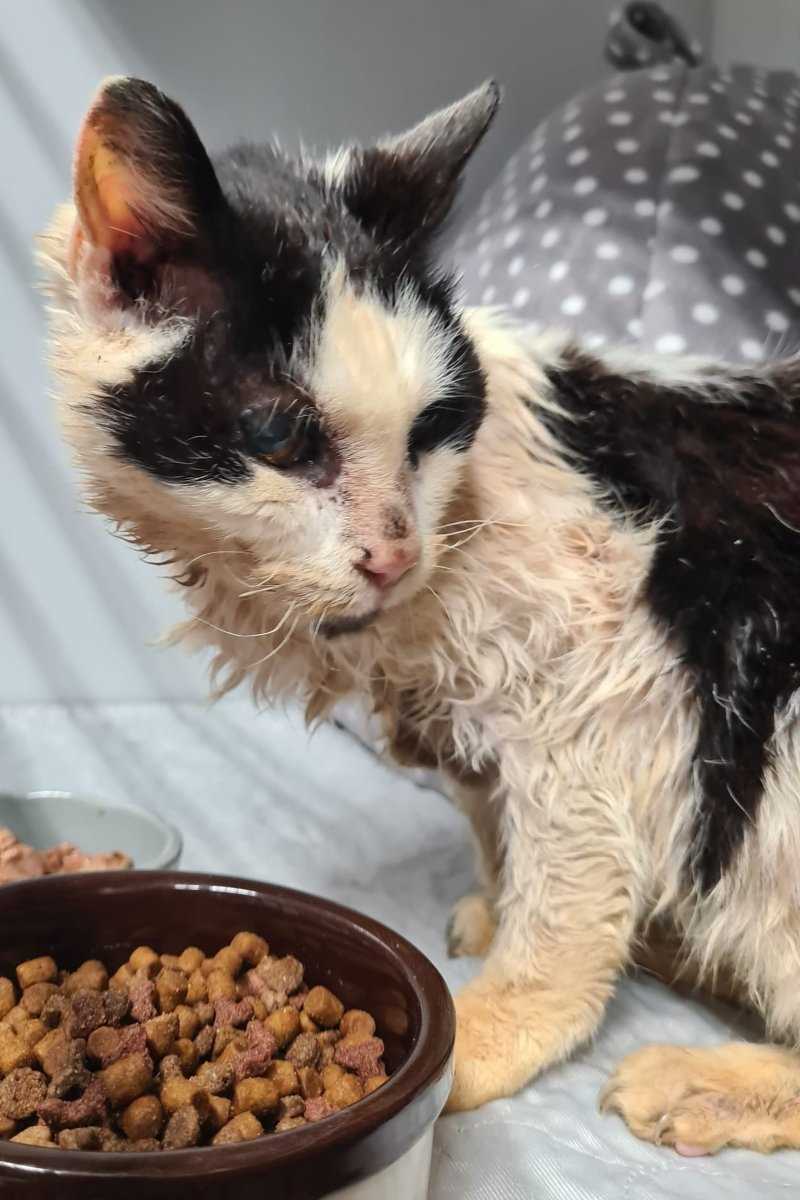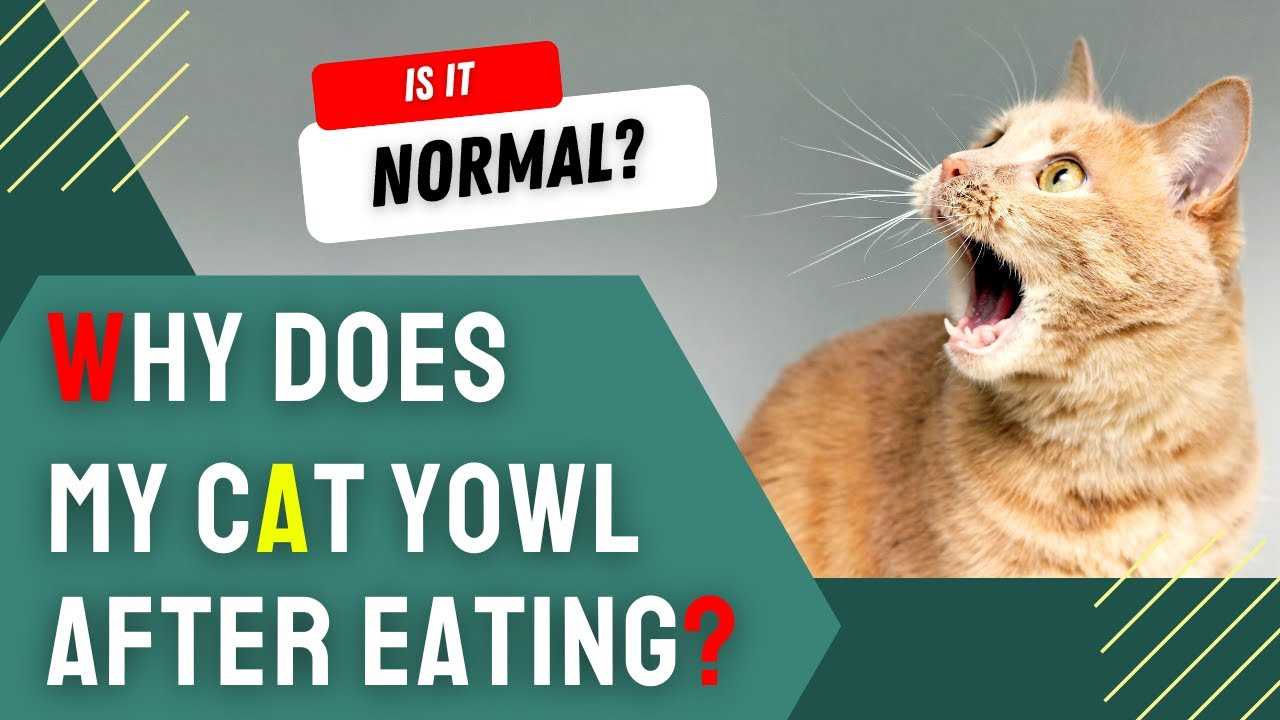



It might come as a surprise, but the sounds I make following my meals often stem from a mix of emotions and sensations. If you’re curious about my vocalizations, it’s essential to consider various factors that contribute to this behavior. For instance, the excitement of enjoying my favorite dish can sometimes lead to a bit of a ruckus.
Another possibility is discomfort. Occasionally, I might experience a bit of indigestion or an upset tummy, prompting me to express my unease vocally. If this happens frequently, it might be wise to consult with a vet to rule out any underlying health issues.
Additionally, my need for attention can play a role. I love engaging with my humans, and sometimes, my post-meal noises are simply my way of seeking interaction. If I feel a little lonely or bored, I might use my voice to remind you that I’m here and ready for some quality time.
Lastly, remember that every feline is unique. Observing my patterns and understanding the triggers behind my sounds will help you respond appropriately to my needs. Keeping an eye on my overall behavior can provide valuable insights into my well-being.
Why Does My Cat Cry After Eating
Feeling a bit uneasy right after my meals is common, and it often leads to vocalizations. If you notice similar behavior, there are a few things to consider. First, assess the food type being served. Some may cause discomfort due to ingredients or intolerance. Pay attention to any signs of allergies or sensitivities.
Another factor could be the feeding method. Eating too quickly can lead to digestive issues. Try using a slow feeder to encourage a calmer pace during meals. This simple change can reduce the chances of upset stomachs and the accompanying noises.
Hydration matters too. Lack of water intake can lead to various issues. Ensure fresh water is always available, and consider wet food options to boost hydration. If there’s still distress, a trip to the vet might be necessary to rule out any underlying health concerns.
| Potential Causes | Recommendations |
|---|---|
| Food sensitivities | Switch to hypoallergenic options |
| Rapid eating | Use a slow feeder |
| Dehydration | Ensure constant access to fresh water |
| Health issues | Consult a veterinarian |
Being attentive to these aspects can lead to a happier, more comfortable mealtime experience. Don’t ignore the signs; they may indicate a need for adjustments in diet or routine. Keeping a close watch on these habits ensures wellbeing and peace during and after meals.
Understanding Common Reasons for Post-Meal Vocalization

It’s not unusual for some felines to express themselves vocally once their meal is finished. Here are several insights into why this behavior may occur:
- Hunger Signals: Even after a meal, some may still feel the urge for more food. This can stem from a strong instinct to hunt and eat whenever food is available.
- Attention-Seeking: Vocalizations can be a way to gain attention. If I notice my human responding to my sounds, I might continue to meow for interaction or playtime.
- Discomfort or Pain: If there’s any discomfort in the stomach or dental issues, it could prompt vocalizations. Observing body language can help identify if something is wrong.
- Behavioral Traits: Some breeds, like me, are naturally more vocal. It’s part of our charm and personality, which might lead to more sounds following meals.
- Communication: I might simply be letting my human know how I feel about the meal. Whether it’s joy or dissatisfaction, my sounds convey my emotions.
Being attentive to these vocalizations can help strengthen the bond between us and ensure that my needs are understood. Regular vet check-ups are also key to ruling out medical issues that might cause this behavior.
Identifying Signs of Discomfort or Pain in Your Feline Friend
Pay close attention to any changes in behavior that may indicate distress. Here are specific signs to watch for:
- Vocalizations that seem unusual or more frequent.
- Changes in appetite, either eating less or showing reluctance to approach food.
- Physical postures, such as crouching or hiding, which can signal unease.
- Excessive grooming or licking certain areas of the body, which might indicate pain.
- Altered bathroom habits, such as straining or avoiding the litter box.
- Restlessness or inability to settle down, suggesting discomfort.
If you notice any of these signs, consider consulting a veterinarian for a professional assessment. Early intervention can help address potential issues before they escalate.
Evaluating Your Pet’s Diet for Potential Issues
Check the quality of the food being served. Ingredients matter, and it’s crucial to ensure that the diet includes high-quality protein sources, essential vitamins, and minerals. Poor nutrition can lead to discomfort, which may explain unusual vocalizations.
Portion size is another significant factor. Overfeeding can cause digestive distress, leading to discomfort post-meal. Consult with a veterinarian to determine the appropriate amount based on weight and activity level.
Monitor for food sensitivities or allergies. Certain ingredients might trigger adverse reactions. If you suspect this, consider a limited ingredient diet. Transitioning to a different food should be done gradually to avoid gastrointestinal issues.
Hydration plays a role too. Ensure fresh water is always available, as dehydration can complicate digestion and lead to discomfort. Wet food can contribute to hydration and may be a better option for some.
Finally, evaluate the feeding environment. Stressful surroundings can influence eating habits and overall comfort. A calm space during mealtime can promote a more relaxed experience. Explore options for cat food for indoor outdoor cats that create a satisfying and stress-free meal.
Exploring Behavioral Factors Influencing Vocalization Post-Meal
When I finish my meal, I sometimes express my feelings through sounds. This behavior may stem from several factors that are worth examining closely. First, excitement plays a significant role. Just like humans might chat about a delicious dinner, I might vocalize my satisfaction or eagerness. If my meal is particularly tasty or if I had a favorite dish, expect some extra noise from me.
Another aspect to consider is the social dynamics at play. I thrive on interaction with my humans. If they respond to my sounds, it reinforces this behavior. In turn, I may continue to vocalize, seeking attention or just wishing to engage in a post-meal discussion. It’s a way to bond and share my experience with my family.
Additionally, my vocalizations can serve as a signal. If I feel the need for reassurance or want to indicate my presence, I might make noises. This can happen more often in busy households where competition for attention is high. If I want to ensure my humans know I’m around, I’ll make my sounds known!
Behavioral patterns can shift with time, especially in response to changes in environment or routine. If I find myself in a new setting or if there are new family members, my vocal responses might increase as I navigate these changes. Understanding this can help you anticipate my needs better.
Should you want to explore additional topics related to animal behavior, check out this interesting link: don t whiz on the electric fence dog. It’s always beneficial to learn more about the nuances of our behaviors!
When to Consult a Veterinarian About Your Feline’s Vocalizations
If my human notices persistent vocalizations following meal times, it’s time to reach out to a vet. This is especially important if the sounds are accompanied by other symptoms such as vomiting, diarrhea, or lethargy.
Monitoring Behavior Changes

Should there be a shift in my usual behavior, like increased aggression or hiding, a vet visit is warranted. Changes in appetite, whether increased or decreased, also signal a need for professional advice.
Assessing Physical Symptoms
Visible signs of discomfort, such as excessive grooming or difficulty in swallowing, should prompt immediate veterinary attention. If my human observes any unusual weight loss or changes in litter box habits, it’s critical to consult a veterinarian without delay.
Practical Solutions to Reduce Post-Meal Crying in Cats

To minimize the vocalizations that occur post-meal, implement a routine feeding schedule. Consistency helps establish expectations, allowing for a more tranquil atmosphere during and after meals.
Consider upgrading to slow feeder bowls. These designs reduce the speed at which food is consumed, aiding digestion and potentially decreasing discomfort that might lead to vocal outbursts.
Serving smaller portions can also be effective. Dividing meals into several smaller servings throughout the day can prevent overeating and the associated issues that may trigger noise.
Ensure a calm environment during mealtime. Reducing distractions from loud noises or sudden movements can create a more peaceful setting that encourages quiet behavior.
Monitoring hydration is key. Providing fresh water in close proximity to food can prevent dehydration, which may contribute to discomfort and subsequent vocalization.
Exploring interactive feeding toys might stimulate mental engagement and slow down eating, reducing the likelihood of distress and vocal expressions following meals.
Regularly assess dental health. Painful teeth or gums can lead to discomfort when eating, prompting vocal responses. Routine dental check-ups can help identify and address any issues.
Observe for patterns of behavior. Keeping a journal of feeding times, vocalizations, and any other notable actions can help identify triggers and offer insights into reducing post-meal noise.
Lastly, ensuring plenty of playtime before meals can help burn off excess energy, potentially minimizing the need for vocalization after eating.
FAQ:
Why does my cat cry after eating?
There can be several reasons why your cat cries after eating. One common reason is that they may still be hungry. Cats often have a natural instinct to hunt, and if they feel that their meal was insufficient, they might vocalize their dissatisfaction. Another possibility is that your cat is experiencing discomfort or pain, possibly due to digestive issues or underlying health problems. It’s also worth considering that some cats are simply more vocal than others, and they might just be expressing their feelings. If the crying persists or is accompanied by other concerning symptoms, it’s advisable to consult a veterinarian for further evaluation.
Is it normal for cats to cry after every meal?
It is not uncommon for some cats to cry after meals, but it shouldn’t happen after every meal. If your cat cries consistently, it may indicate an underlying issue. This could range from hunger to discomfort. Some cats may cry if they feel anxious about their food or if they are competing with other pets for attention or resources. If the behavior is sudden or accompanied by changes in eating habits, weight loss, or signs of pain, it’s crucial to seek veterinary advice. A vet can help determine if there’s a medical issue at play or if the behavior is just a quirk of your pet’s personality.









